There are plenty of people who think this whole AI revolution thing isn't what it's cracked up to be, that it's a storm in a teacup and another in a long list of technologies that won't deliver on the hype. Indeed, there's one in our team here at New Atlas, and I've asked him to out himself and put together a case for the negative, which I'm eager to read.
But there's plenty of others, myself included, that see this as the start of the greatest technological revolution humanity has ever seen. Today's multimodal AIs are already wildly capable in so many areas, and they're improving at a rate neither I nor Elon Musk have ever witnessed with any other technology. They're coming full speed for white-collar and creative jobs that would once have been thought of as untouchable. The kind of shocks that OpenAI's Sora has sent through the entertainment industry have been coming thick and fast in a huge range of employment categories.
Blue-collar workers can afford to be smug for a little while, but as varied and physical as their work is, AI is coming for that too. The advances made in humanoid robotics over the last few months make it clear enough to me: AI models project to be just as proficient at learning their way around a body, a tool box and the physical world as they have been at more or less anything else they've been given the data, the compute and the time to get their heads around.
For the first time in human history, there's a non-zero chance, and maybe even a probability, that the vast majority of human work might simply not be needed within a decade or two – and a real pathway to get there, that multiple multi-billion dollar companies are pushing toward with all their resources.
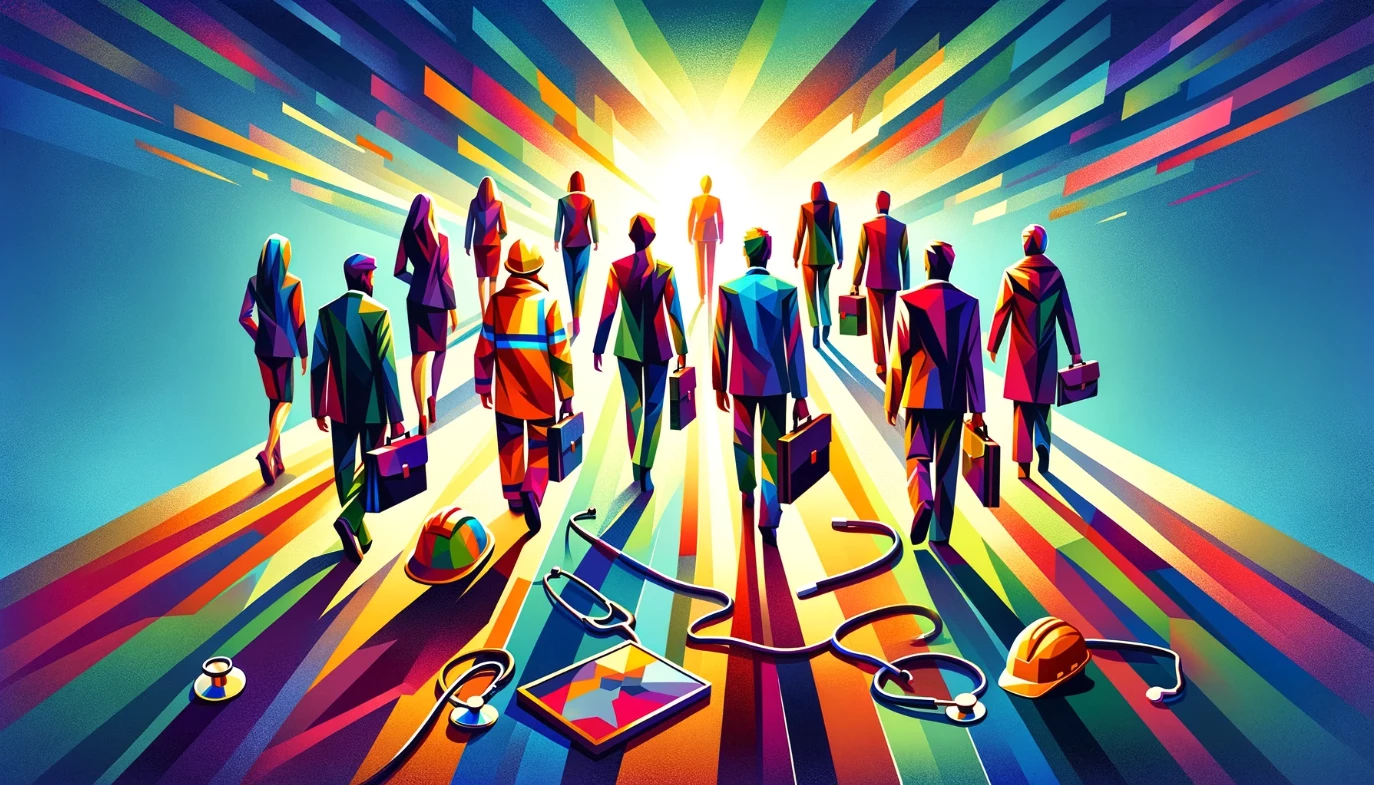
If AI does what it says on the tin, this won't be like the agricultural revolution, the industrial revolution, or the information revolution, where we'll just move to different jobs. The promise of embodied AGI is that it'll simply be better at us at whatever there is to do, as well as much faster, cheaper and more reliable. The value of both intelligence and physical work could well drop to nearly zero.
This fundamentally changes society – but how? Does capitalism hold up when all the labor power is owned and deployed by a few giant companies? What is the role of the individual? What do we do with ourselves, particularly given that AI has proven shockingly competent in the creative arts? What happens to money, and what the hell should governments be doing to prepare for the possibility of such upheaval?
Independent AI researcher and YouTuber David Shapiro has dressed up in Star Trek gear and taken a stab at building an economic picture of a post-AI world, which he describes in detail in the 35-minute presentation below.
Shapiro outlines some interesting ideas, which I'll attempt to summarize below if you don't have time to watch the full video. I was looking into finding the right people to interview on this topic, but Shapiro provides a nice place to start from, extrapolating forward from the premise that AIs indeed live up to the hype, and they don't immediately take over or decide to eliminate biological life.
Hyperabundance
If intelligence and labor become incredibly cheap, a snowball of productivity could be unleashed. AGI-speed advances in science, technology, commerce, communications and robotics could start making extremely quick and efficient use of energy and resources, creating businesses that are capable of scaling in unprecedented ways. Add unlimited robotic labor to the mix, and the sheer amount of stuff that gets made promises an age of hyperabundance.
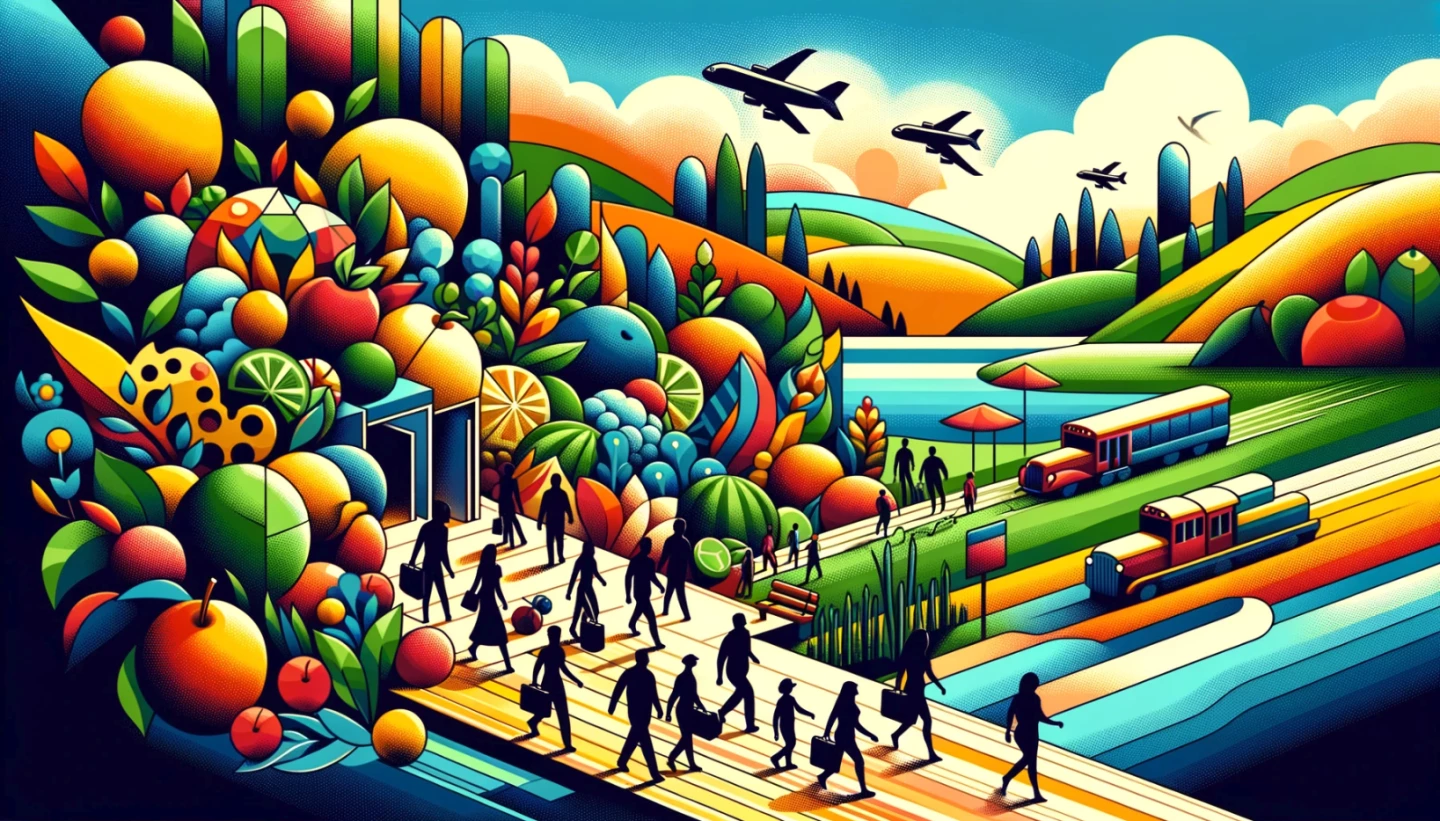
Price collapse
All that supply could crash prices more or less across the board. Not everywhere, though; land remains finite and increasingly valuable, but goods and services, and even a lot of companies, simply won't be worth that much.
Reduced aggregate demand
For commerce to function, companies need buyers to sell to. But if a large proportion of humanity can't earn money from work, unemployment threatens a huge drop in demand. So Shapiro believes there are incentives beyond the torch and the pitchfork at both the private sector and government levels to redistribute profits, whether through a universal basic income model, through a "negative tax" in which any productive human work is rewarded by the government, through universal basic services, or through some other model.
Deglobalization
Global commerce could be fundamentally changed when the cost of robotic labor is just the same in the Phillipines as it is in Switzerland. A rationalization of manufacturing could make sense, in which most goods are manufactured locally to reduce transport costs and emissions, and to provide tailored products on demand.
Despecialization and bespoke products and services
The companies that own the best AI models needn't necessarily specialize. In the digital realm, there's no reason why a company shouldn't offer legal services, financial services, websites, custom music, custom TV shows and movies made to order, and bespoke VR experiences and games. These things are already starting to happen. But physical manufacturing companies too may become more about their means of production and available source materials than about the final products they're known for. Tell 'em what you want, and they'll make it.
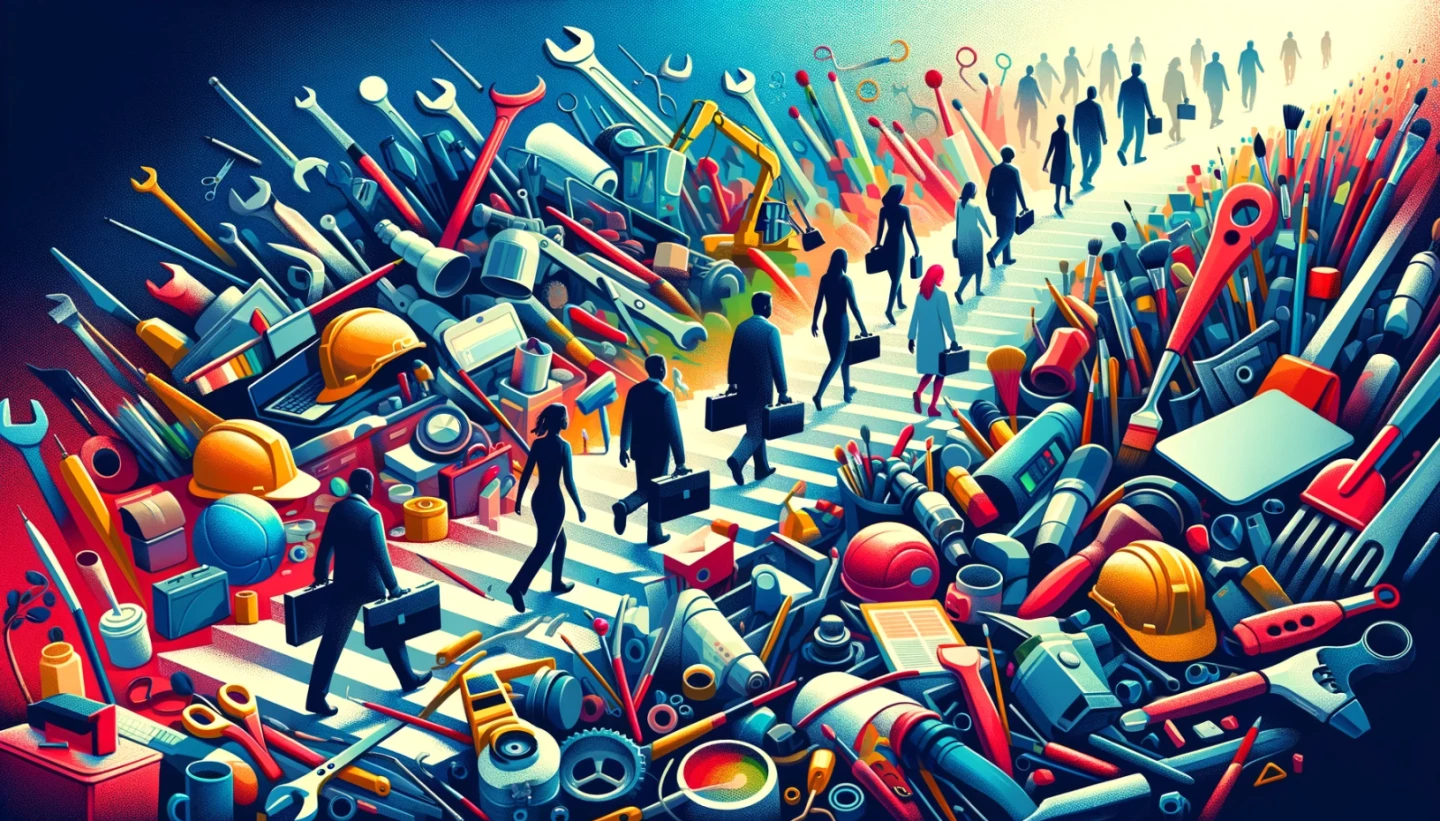
Industry survivors
Shapiro projects that certain sectors will survive where others wither away. Robotics and automation, of course, as well as semiconductor production, raw materials, and a huge ramp-up in clean energy generation. In the coming gold rush, look for the guys selling shovels. But in a post-labor world, 'experience industries' could also thrive, offering people things to do with all their time. Hospitality, luxury goods, personal services and other 'uniquely human' industries will experience increased demand.
Industry extinctions
On the other side of the ledger, Shapiro sees an AI revolution leading to radical extinction-level shifts in areas like healthcare. Advances in longevity research could put a bullet in aged care. The human education system will struggle to compete against the personalised attention and gamification that AI can provide – and indeed, in a post-work world, the entire reason underpinning much of education is set to change radically. The insurance and superannuation industries will likely be fundamentally restructured. And as far as media and entertainment goes, Shapiro doesn't see much hope for companies the size of Disney once anyone can create a movie or VR experience at low cost, although live entertainment performances may well become a growth industry.
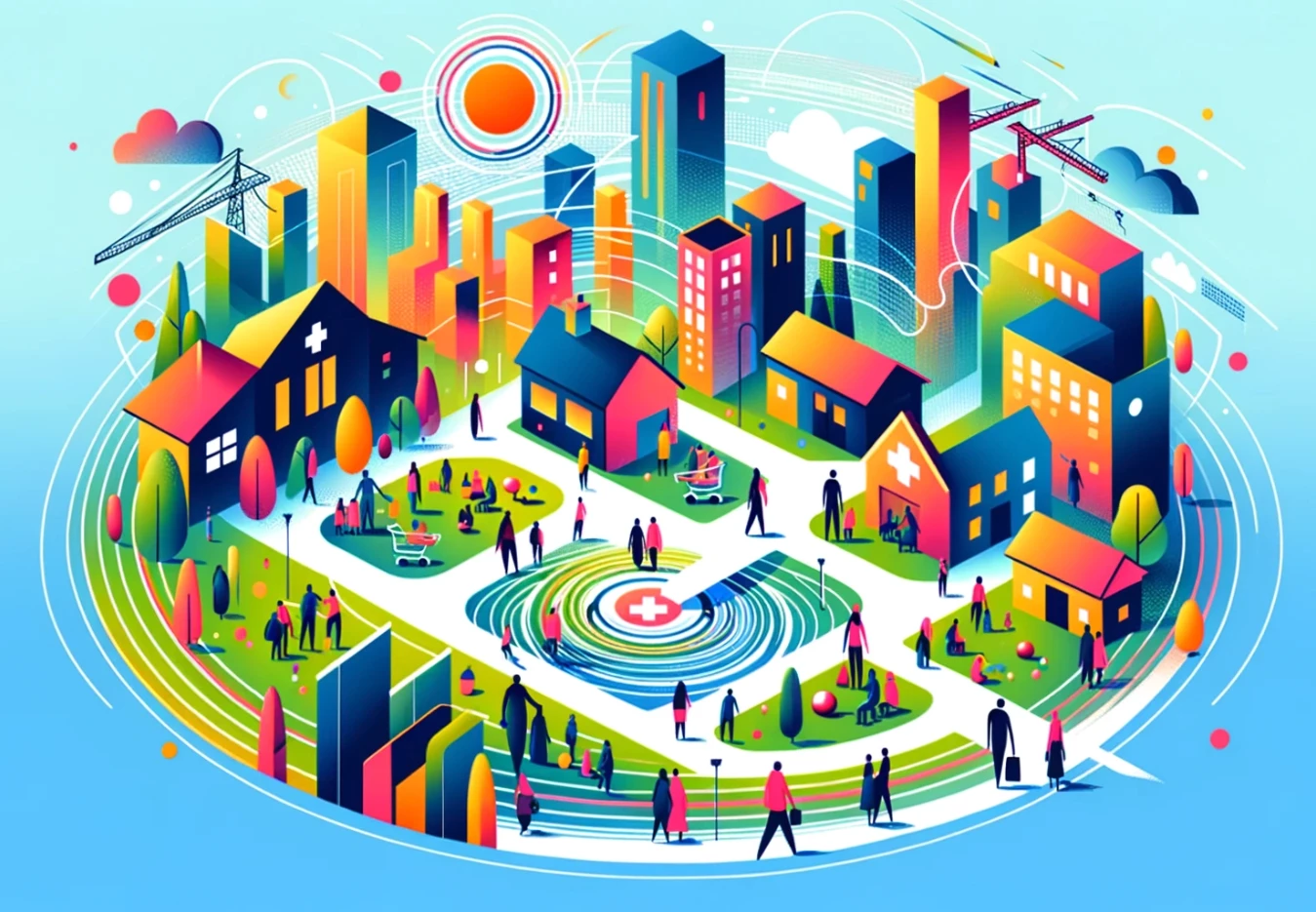
Step one: A primary needs-based economy
The first challenge for governments in a post-work era will be to reorient their systems to make sure everyone's basic needs are met: Food, water, shelter, clothing, energy, healthcare, infrastructure, communications – that sort of thing. Some of this could well be aided by a hyperabundance-level price collapse, driving the basic cost of living way down. Other parts – land for housing, for example – might go the other way. But this stuff needs to be handled with equity and dignity at a population-wide scale even as employment begins to collapse.
The post-wealth status game
Humans have a great need to measure themselves against other humans. Wealth and conspicuous consumption have been relatively recent social status signals in the development of our species, and Shapiro sees a return to a much more diverse set of ways for people to elevate themselves. Through relationships and social standing. Through creative skills like musicianship and artistic expression. Through knowledge. Through athleticism and physical attractiveness. All these hierarchies already exist, and it'll be interesting to see what happens when they become our key point of productive focus.
A new social contract
The most frightening issue, in Shapiro's view, is the balance of power, which is now in some kind of unequal but stable balance between business owners, governments and citizens around the world. Workers stand to lose the sole bargaining chip that has got their needs and desires onto the table at all: their work, and by extension their contribution to a national economy and value as a citizen. As we transition to a post-labor era, the current balance of power will swing dramatically toward the owners of the new workforce.
Instead of mediating the relationship between business and labor, the role of government will need to shift, eventually nearly all the way to becoming solely the advocate of humankind as the power of the automated business sector grows. This could be easier said than done; robot overlords won't just be able to mobilize labor at scale, they'll easily be able to mobilize violence at scale in ways previously reserved for governments.
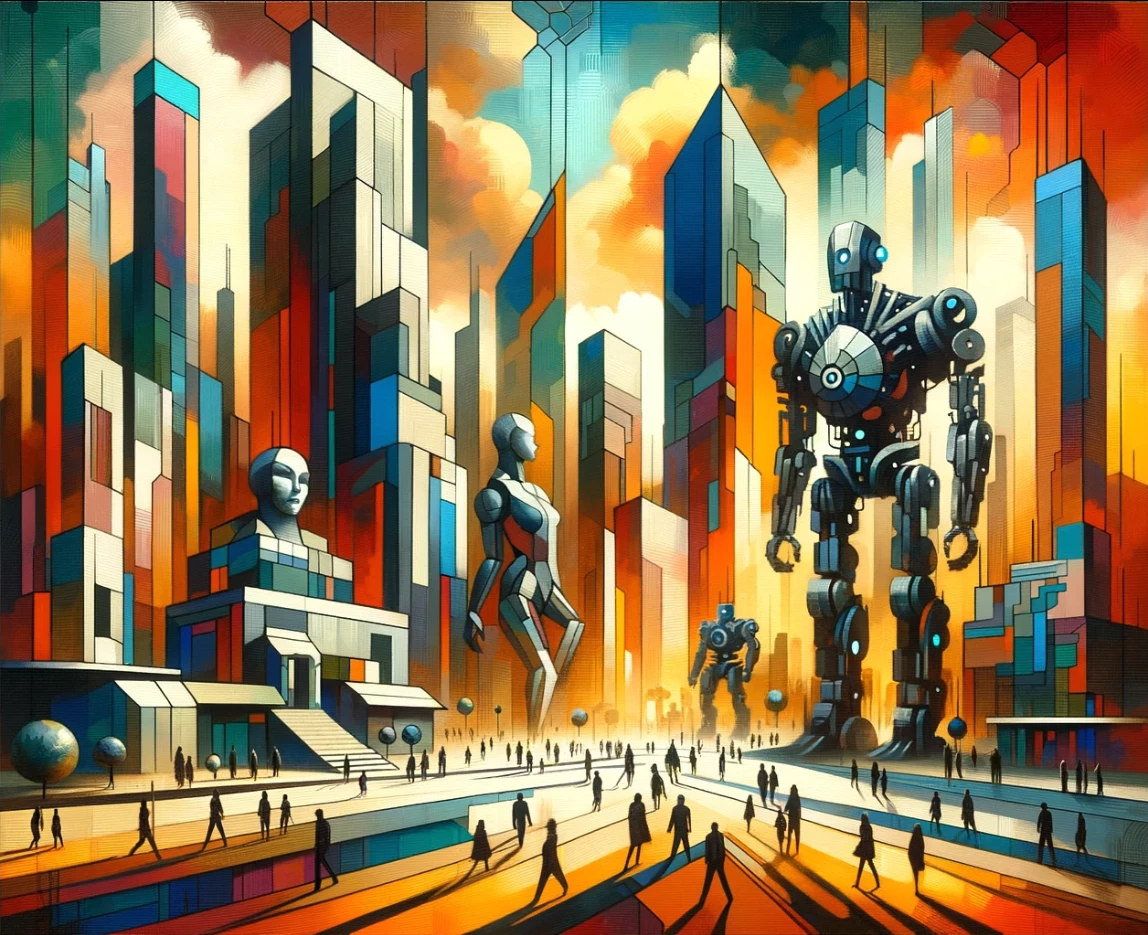
The only way a new equilibrium can be found and a new social contract forged is through extremely robust regulations and anti-corruption laws – two concepts that have had widely varying degrees of success wherever they've been tried. Citizens will need new powers – and in an ideal outcome, Shapiro says the foundation of these powers could weirdly lie in our ability to withhold consumption and demand, rather than withholding labor.
"Honestly, changing the narratives around money and around democracy is probably the hardest part of this," says Shapiro. "We've got lots of tools in the financial toolbox in terms of monetary policy and fiscal policy, however, in America, our narratives around the ownership class, around wealth, around privilege, around the elites, that is probably going to be the biggest sticking point. Because a lot of people are 'temporarily embarrassed millionaires,' saying things like 'protect the millionaire class, protect the corporate class at all costs.' They don't need any help. They're fine.
"We need to change the focus from the engines of productivity," he continues, "to us. I'm not talking about radically restructuring the entire economy, but we need to change something."
Clearly, Shapiro has a point of view on all of this, and this could fairly be described as an optimistic take. I recommend watching the video in its entirety if you can, I certainly haven't covered all the ideas in this piece.
It's probably unfair to hold up one thinker's ideas for scrutiny rather than broadening this piece to provide alternatives, but I think it's an important conversation to begin having at a species-wide level. So let's play the ball, not the man, and discuss where these ideas might hit and miss in the comments section below.
How do you think a post-work society might function?
Source: David Shapiro







